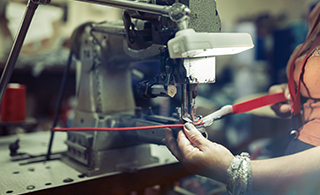, Eurasian Development Bank, European Investment Bank, IADB - Inter American Development Bank 01 copy.jpg) Beverages, Defence & Security, Chemicals, Manufacturing, Oil & Gas, Paper, Wood & Furniture, Textile, Consulting, Pharmaceutical & Medical
Development of system for extraction of polychlorinated biphenyl (PCB) from in-service transformers
Beverages, Defence & Security, Chemicals, Manufacturing, Oil & Gas, Paper, Wood & Furniture, Textile, Consulting, Pharmaceutical & Medical
Development of system for extraction of polychlorinated biphenyl (PCB) from in-service transformers
Development of system for extraction of polychlorinated biphenyl (PCB) from in-service transformers
Development of system for extraction of polychlorinated biphenyl (PCB) from in-service transformers has been closed on 03 Feb 2021. It no longer accepts any bids. For further information, you can contact the
Bellow, you can find more information about this project:
Location: Kenya
General information
Not available
Beverages
Defence & Security
Chemicals
Manufacturing
Oil & Gas
Paper, Wood & Furniture
Textile
Consulting
Pharmaceutical & Medical
Closed
Timeline
19 Jan 2021
03 Feb 2021
Not available
Contacts
Description
Receive Daily Tenders and Grants notifications
Subscribe nowFeatured tenders
-
 Tender
08 Jun 2021
Kenya
PROVISION OF MANAGED SERVICES FOR THE UN COMMISSARY AT THE UNITED NATIONS OFFICE AT NAIROBI (UNON)
United Nations Capital Development Fund
Tender
08 Jun 2021
Kenya
PROVISION OF MANAGED SERVICES FOR THE UN COMMISSARY AT THE UNITED NATIONS OFFICE AT NAIROBI (UNON)
United Nations Capital Development Fund
-
 Tender
21 Jan 2021
Kenya
REQUEST FOR QUOTATION NBO21-4200035527
Tender
21 Jan 2021
Kenya
REQUEST FOR QUOTATION NBO21-4200035527
-
 Tender
25 Jan 2021
Kenya
REQUEST FOR QUOTATION-NBO21-015
Tender
25 Jan 2021
Kenya
REQUEST FOR QUOTATION-NBO21-015
-
 Tender
27 Jan 2021
Kenya
2021-032 Procurement of First Aid Kits ( KENYA BASED SUPPLIERS ONLY)
Tender
27 Jan 2021
Kenya
2021-032 Procurement of First Aid Kits ( KENYA BASED SUPPLIERS ONLY)
-
 Tender
25 May 2021
Kenya
XRAY MACHINES
United Nations Capital Development Fund
Tender
25 May 2021
Kenya
XRAY MACHINES
United Nations Capital Development Fund
Get free access to our Tenders & Grants Database
Our service is free of charge and will always be
Join NowDonors
-
 Asian Development Bank
Asian Development Bank
-
 COMPREHENSIVE NUCLEAR-TEST-BAN TREATY ORGANIZATION
COMPREHENSIVE NUCLEAR-TEST-BAN TREATY ORGANIZATION
-
 EUROPEAN INVESTMENT BANK
EUROPEAN INVESTMENT BANK
-
 EXTRACTIVE INDUSTRIES TRANSPARENCY INITIATIVE
EXTRACTIVE INDUSTRIES TRANSPARENCY INITIATIVE
-
 EUROPEAN AGENCY FOR THE MANAGEMENT OF OPERATIONAL COOPERATION AT THE EXTERNAL BORDERS OF THE MEMBER STATES OF THE EUROPEAN UNION
EUROPEAN AGENCY FOR THE MANAGEMENT OF OPERATIONAL COOPERATION AT THE EXTERNAL BORDERS OF THE MEMBER STATES OF THE EUROPEAN UNION
-
 NORDIC DEVELOPMENT FUND
NORDIC DEVELOPMENT FUND
-
 ORGANIZATION OF AMERICAN STATES
ORGANIZATION OF AMERICAN STATES
-
 OTHER
OTHER
-
 SWISS DEVELOPMENT COOPERATION
SWISS DEVELOPMENT COOPERATION
-
 WORLD BANK
WORLD BANK